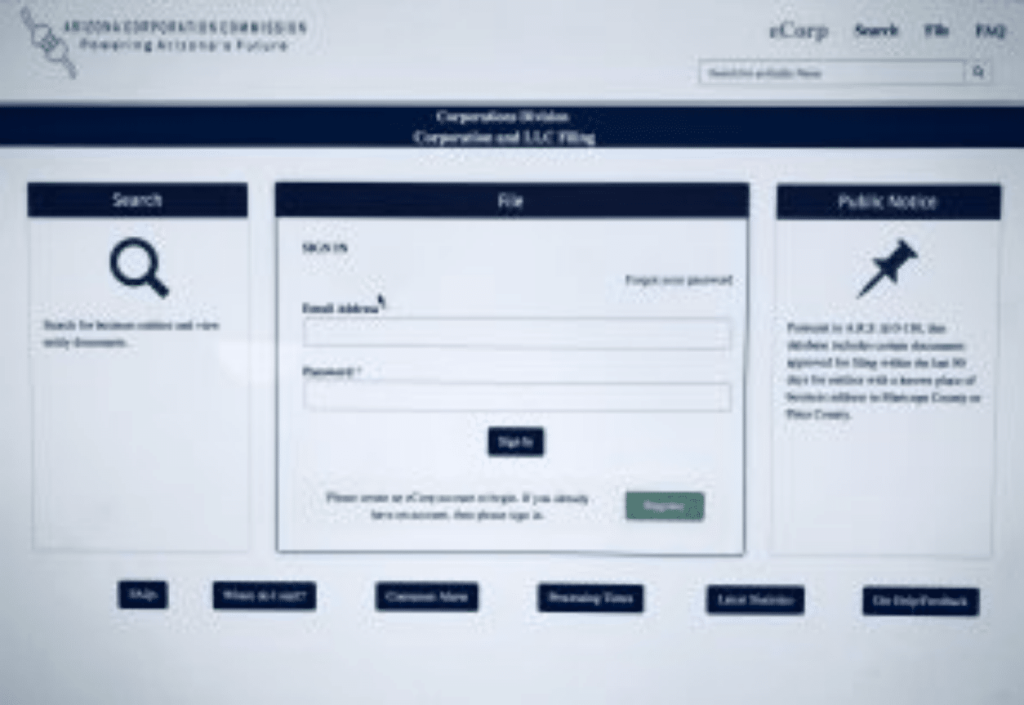
Arizona Corporation Commission – Online Services
In May 2018, the Arizona Corporation Commission released a major update to their website’s online services. Users can create an online account, submit and manage

In May 2018, the Arizona Corporation Commission released a major update to their website’s online services. Users can create an online account, submit and manage

The first step to managing conflicts is the disclosure of conflicts. If decision-makers are not required to disclose their conflicts, then there is no way to ensure that their decisions are not tainted by self-interest. Even the most well-meaning individuals can have their decision-making clouded by competing interests. The only way to ensure conflicts are properly managed is to disclose those conflicts and recuse oneself from the decision-making process when conflicts arise.

Foundations are required to expend approximately 5% of their assets for charitable purposes each year. The other 95% is invested to generate distributable income for future years. Historically, foundations have struggled with the idea of making riskier investments that further their charitable purposes, but do not qualify as a PRI because a significant purpose of the investment is the production of income or the appreciation of property.

Nonprofits have a compelling negotiating tool that pairs employee debt relief with long-term employee commitment (at least to the sector) and doesn’t cost the nonprofit anything.

At the end of each year we like to look back at our most popular posts to evaluate what our readers are finding most interesting and useful on the blog. What follows is a list of CharityLawyer’s Top 10 posts for 2014 measured by page views

Just released this month, the Arizona Corporation Commission now offers annual report email reminders for entities incorporated in Arizona; all you have to do is sign up! All corporations,

On June 13, 2013, the Senate Finance Committee released a cooperative, bipartisan report comprised of suggestions on how (and why) to change government regulations on tax-exempt/nonprofit organizations and on the rules of charitable giving. The Committee’s Report set forth a number of issues that need to be addressed in the nonprofit and charitable giving arena, and offer a number of potential solutions.

We are often asked “ what exactly is a B Corporation? B Corporations are a new kind of company that uses the power of business to solve social and environmental problems. You can think of a B Corporation certification as analogous to a Fair Trade or LEED certification, but for a business instead of a bag of coffee or a building.

Arizona recently passed benefit corporation legislation (SB 1238). Arizona joins fifteen other jurisdictions including California, New York and the District of Columbia that have already passed legislation. While the new law is not effective until December 31, 2014, the Arizona benefit corporation offers social entrepreneurs an important new option to consider when forming a new venture.

We are often asked whether nonprofits must follow Arizona open meeting law (OML). Generally, nonprofits are not required to follow open meeting law; however, there are some exceptions “ most notably charter schools. Charter schools are treated as public institutions for OML purposes because they are both funded with state tax dollars and are overseen by the state.
Download our free guide to learn about the many elements needed to run a successful nonprofit organization, as well as how to avoid common pitfalls and mistakes.